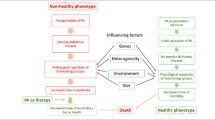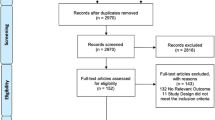Abstract
Background and aims: Functional independence (FI) is commonly measured by checklist questionnaires that grade whether specific daily living tasks can be performed with or without ancillary assistance. Among older adults who are functioning independently precursory measures of daily living may be useful in gauging how long an individual can remain independent in advanced age. This study examined the SF-36, a standardized self-report measure of health-related quality of life, as a precursory marker of FI in a representative sample of healthy older adults. Methods: The study consisted of 696 Dutch enrollees from the Maastricht Aging Study (MAAS) who were 50 years and older and had been screened for health and cognitive deficits. They were assessed at two time points separated by a nine-year interval on standardized activities of daily living (ADL) and instrumental activities of daily living (IADL) items that measure the presence or absence of assistance need across five functional domains. MAAS enrollees also received the SF-36 at both time points. Results: The SF- 36 Physical Component Summary (PCS) predicted change in ADL/IADL assistance need after nine years (OR 0.94, CI 0.92–0.97). Conclusion: In older adults from MAAS who were otherwise functioning independently at baseline, the SF-36 PCS was a suitable precursory measure of the emergence of assistance need after nine years.
Similar content being viewed by others
References
MacNeill SE, Lichtenberg PA. Predictors for functional outcome in older rehabilitation patients. Rehabil Psychol 1998; 43: 246–57.
Zimmer J, Rothenberg B, Andersen E. Functional assessment. In Andersen E, ed. Functional Assessment in Assessing the Health Status of Older Adults. New York, NY: Springer, 1997: pp 1–41.
Reuben DB, Valle LA, Hays RD, Siu AL. Measuring physical function in community-dwelling older persons: A comparison of selfadministered, interviewer-administered, and performance-based measures. J Am Geriatr Soc 1995; 43: 17–23.
Peres K, Helmer C, Amieva H. Natural history of decline in instrumental activities of daily living performance over the 10 years preceding the clinical diagnosis of dementia: A prospective population-based study. J Am Geriatr Soc 2008; 56: 37–44.
Katz S, Ford AB, Moskowitz RW, Jackson BA, Jaffe MW. Studies of illness in the aged. JAMA 1963; 185: 914–9.
Mahoney F, Barthel D. Functional Evaluation: the Barthel Index. Maryland State Med J 1965; 12: 61–5.
Hartigan I. A comparative review of the Katz ADL and the Bathel Index in assessing the activities of daily living of older people. Int J Older People Nursing 2007; 2: 204–12.
Holstein BE, Due P, Almind G, Avlund K. Eight-year change in functional ability among 70-to 95-year-olds. Scand J Public Health 2007; 35: 243–9.
Kempen GIJM, Miedema I, Ormel J, Molenaar W. The assessment of disability with the Groningen Activity Restriction Scale. Conceptual framework and psychometric properties. Soc Sci Med 1996; 43: 1602–996.
Kempen GIJM, Scaf-Klompb W, Ranchorb AV, Sandermanb R, Ormelc J. Social predictors of recovery in late middle-aged and older persons after injury to the extremities. J Gerontol Psychol Sci Soc Sci 2001; 56: 229–36.
Ware JE, Sherbourne CD. The MOS 36-item short-form health survey (SF-36): I. conceptual framework and item selection. Med Care 1992; 30: 473–83.
Ware JE, Snow KK, Kosinski M, Gandek B. SF-36 health survey manual and interpretation guide. Boston, MA: New England Medical Center, The Health Institute, 1993.
Hayes V, Morris J, Wolf C, Morgan M. The SF-36 Health Survey Questionnaire: Is it Suitable for use with Older Adults? Age Ageing 2007; 24: 120–5.
Sabbah I, Drouby N, Sabbah N, Retel-Rude N, Mercer M. Quality of life in rural and urban populations in Lebanon using SF-36 Health Survey. Health Qual Life Outcomes 2003; 1: 30.
Metsemakers JF, Hoppener P, Knottnerus JA, Kocken RJ, Limonard CB. Computerized health information in The Netherlands: a registration network of family practices. Br J Gen Pract 1992; 42: 102–6.
Jolles J, Commissaris CJAM, Bosma H, van Boxtel MP, Ponds RWHM, Metsemakers JFM. De Maastricht Aging Study en het longitudinale perspectief van cognitieve veroudering. In Schene AH, Boer F, Heeren TJ, Henselmans HWJ, Trijsburg RW, Vandereycken W, van der Velden K, eds. Jaarboek voor Psychiatrie en Psychotherapie 2001; 7: 175–93.
Van Beijsterveldt CE, van Boxtel MP, Bosma H, Houx PJ, Buntinx F, Jolles J. Predictors of attrition in a longitudinal cognitive aging study: the Maastricht Aging Study (MAAS). J Clin Epidemiol 2003; 55: 216–23.
Folstein MF, Folstein SE, McHugh PR. Mini-mental State: a practical method for grading the cognitive state of patients for the clinician. J Psychiatr Res 1975; 12: 189–98.
Arrindell WA, Ettema JHM. SCL-90. Een multidimensionele psychopathologie indicator (The SCL-90. A multidimensional instrument for the assessment of psychopathology). Lisse, The Netherlands: Swets & Zeitlinger, 1986.
Van der Zee KI, Xanderman R, Heyink J. Psychometrische kwaliteiten van de MOS 36-item Short Form Health Survey (SF-36) in een Nederlandse populaties. Sociale Gezondheidzorg 1993; 71: 183–91.
McHorney CA, Ware JE Jr, Lu JF, Sherbourne CD. The MOS 36-item Short-Form Health Survey (SF-36): III. Tests of data quality, scaling assumptions, and reliability across diverse patient groups. Med Care 1994; 32: 40–66.
Guilley E, Ghisletta P, Armi F, Berchtold A, d’Epinay J-PM, de Ribaupierre A. Dynamics of frailty and ADL dependence in a fiveyear longitudinal study of octogenarians. Res Aging 2008; 30: 299–317.
Kuh D. A life course approach to healthy aging, frailty, and capability. J Gerontol A Biol Sci Med Sci 2007; 62: 717–21.
Amieva H, Jaquim-Gadda H, Orgogozo JM et al. The nineyear cognitive decline of dementia of the Alzheimer’s type: A population based study. Brain 2005; 128: 1093–101.
Author information
Authors and Affiliations
Corresponding author
Rights and permissions
About this article
Cite this article
Hill, R.D., Mansour, E., Valentijn, S. et al. The SF-36 as a precursory measure of adaptive functioning in normal aging: the Maastricht Aging Study. Aging Clin Exp Res 22, 433–439 (2010). https://doi.org/10.1007/BF03324943
Received:
Accepted:
Published:
Issue Date:
DOI: https://doi.org/10.1007/BF03324943




